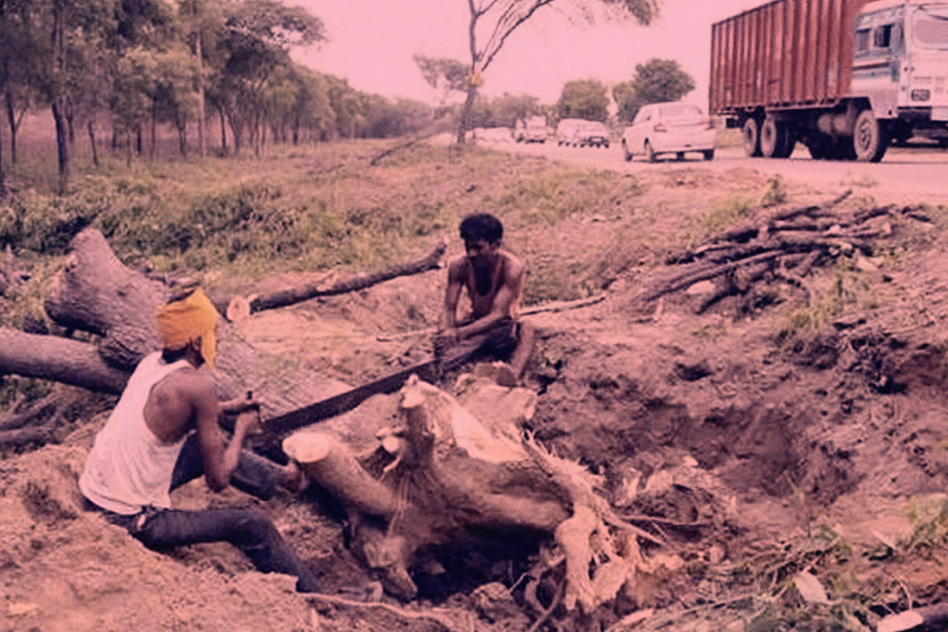Nagpur is developing at a colossal rate at the expense of rapid deforestation. The city has lost 4000-hectare of green cover and 60 Seminary Hills reserve forest in the last two decades, reported The Times Of India.
According to a study conducted by the Indian Space Research Organisation’s (ISRO) Regional Remote Sensing Centre (RRSC) on the request of Nagpur’s honorary wildlife warden Jaydeep Das, the city’s green cover decreased by almost 30 per cent between 1999 and 2018. However, in stark contrast, the infrastructural development in the city increased by 83 per cent.
The researchers relied on the data received from satellites Landsat 7 and Landsat 8. The study has stressed upon the “drastic” depletion of green cover in South West Nagpur. The images procured from the satellite for the study reveals that infrastructural development have doubled in the city, whereas the green cover has plunged.
In the 25-kilometre range city, the green cover dropped from 116 square kilometres in 1999 to 76 square kilometres by 2018. The images of green loss in areas like Hudkeshwar, Besa, Manish Nagar, Narsala, Chinchbhuvam, and Hudkeshwar were shocking.
The report said, “Within the municipal limits, green cover decreased by 34 per cent and infrastructural cover went up by 16 per cent. National resources in the city are shrinking.”
The report alleged the civic authorities for their negligence on rejuvenating the green cove. “There are few further green patches within the city which are few. These might be a result of efforts taken by authorities,” it said. The report blamed “unbalanced development” for climate change and said that the ratio of developmental activities along with green coverage and water resources needs to be conserved.
Environmental activists in the city are anticipated to submit the study to the Nagpur Municipal Commissioner Abhijit Bangar. Prafulla Bhamburkar, a wildlife conservationist blamed the significant development of Mihan-SEZ, for the immense green cover lost in the city.
Also Read: Norway Becomes World’s First Country To Commit To Zero Deforestation











